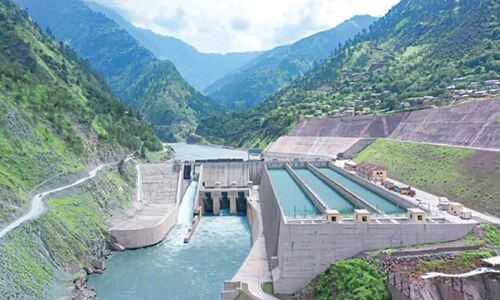KARACHI: Bigwigs of banking and microfinance sectors were in for a rude awakening on Thursday evening: a young businesswoman from Lahore who they gave a hearty round of applause for setting up a successful business said her frequent loan applications to microfinance banks went nowhere during the four years of her entrepreneurial journey.
“I wanted to buy a van for my school, but they asked me to engage property (as collateral). I didn’t have any property. Microfinance banks never helped me in any way,” Rabia Ashiq, 24, told a panel of experts discussing youth entrepreneurship and financial inclusion for inclusive growth at the British Deputy High Commission.
Ms Ashiq is a graduate of the incubation centre, funded by Citi Foundation, at the Lahore University of Management Sciences (LUMS).
Responding to her comment, Pakistan Microfinance Investment Company (PMIC) Chairman Zubyr Soomro said microfinance institutions do not have the capacity to offer sophisticated loan products. “Microfinance institutions give only simple, one-year loans,” he said, adding that these institutions are likely to enhance their capacity in the next one year.
PMIC is the apex body for the country’s microfinance sector, which currently consists of around 35 institutions, including 11 microfinance banks that are allowed to collect deposits from micro-savers.
Latest statistics show there were 5.2 million active microfinance borrowers at the end of the second quarter of 2017. The gross loan portfolio of all microfinance institutions stood at Rs171 billion. The industry expects to grow it three times in the next three years.
But as Ms Ashiq’s case demonstrates, existing players have barely scratched the surface in the microfinance marketplace. According to financial inclusion data released by the World Bank, only 1.5 per cent Pakistanis borrowed from a financial institution in 2014 as opposed to 49.8pc people who borrowed from friends, family or any other informal lender.
Mr Soomro, who formerly led Citibank and United Bank, listed a number of initiatives that his organisation is working on to make access to finance easy, especially for entrepreneurs.
“Our institution’s capital by the middle of the next year will be Rs20bn. We can leverage that 10 times, taking it up to Rs200bn. Therefore, funding for the growth of the sector is not unmanageable,” he said, noting that the issue is the ability and willingness of microfinance institutions to lend to entrepreneurs.
PMIC is engaged in product development for entrepreneurs’ specific needs as each of these institutions cannot be expected to come up with sophisticated products themselves, he said.
Additionally, PMIC is providing microfinance institutions with financing through loans as well as equity. “Through equity, we will get our people on their boards. Through that, we’ll look to drive the process of capacity building in those institutions,” he said.
Moreover, the apex body is trying to help 25 institutions get microfinance banking licences. “Initially at the lower level, district licence, regional licence or provincial licence. Through that you help them build products and capacity. We are at early stages in this process,” he added.
The size of an average loan extended by a microfinance institution was nearly Rs45,000 at the end of June. The upper limit of a microfinance loan is Rs500,000. In other words, a small business that needs, for example, Rs2m for expansion or working capital is not eligible for a microfinance loan. But commercial banks are rarely willing to extend that kind of funding to small businesses.
Speaking on the occasion, Citibank Pakistan Managing Director Nadeem Lodhi said commercial banks should not be expected to play an active role in this particular segment of clients, for now at least.
“Commercial banks have neither the infrastructure nor the products or risk architecture to actually assess that need and monitor that lending,” he said, advising entrepreneurs to gain “network and confidence” through incubation programmes.
Published in Dawn, November 25th, 2017















































Dear visitor, the comments section is undergoing an overhaul and will return soon.